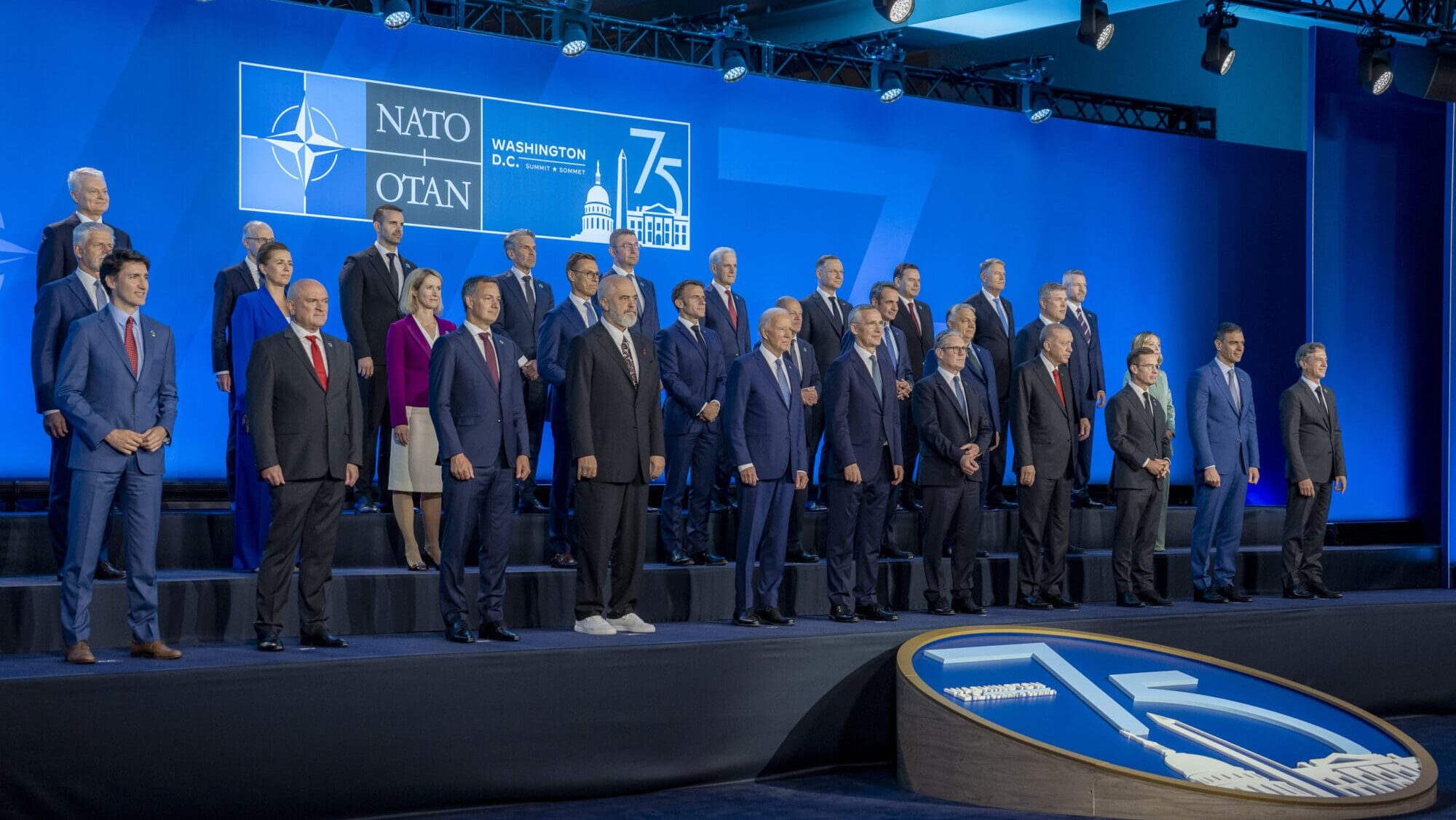
Photo: @POTUS on X, 10 July 2024
At their summit in Washington, D.C., NATO leaders agreed to bolster Ukraine’s defence, station long-range missiles in Germany, and even called out China for being a “decisive enabler” of Russia’s war against Ukraine.
The summit, held on the 75th anniversary of the founding of the transatlantic military alliance, not only aimed to display unity among its 32 members but also tried to send a clear message to Russia and China, which NATO sees as a threat to the alliance’s security.
Today at the #NATOSummit, Allies agreed a defence industrial pledge to enhance our deterrence & defence.
— Jens Stoltenberg (@jensstoltenberg) July 10, 2024
On Ukraine, we endorsed #NATO Security Assistance & Training for Ukraine, and a financial pledge of €40B as a minimum baseline within the next year.https://t.co/HFD4YTQ6m6
The joint statement declares that Ukraine is on an “irreversible” path to membership. In practice, this would need all NATO members to agree to accept Ukraine. The country would only be able to join the alliance once its war with Russia is over. The alliance does not want to provoke Russian President Vladimir Putin, who recently announced Kyiv would have to abandon its membership bid for Russian troops to leave its territory.
The joint statement says:
NATO does not seek confrontation, and poses no threat to Russia. We remain willing to maintain channels of communication with Moscow to mitigate risk and prevent escalation.
A separate announcement that the United States, the Netherlands, and Denmark would send F-16 fighter jets to the Ukrainian military pilots by this summer indicates concrete and tangible support for Ukraine. NATO members intend to provide Ukraine with at least €40 billion worth of military aid within the next year. This comes on top of a previous promise to deliver air defence systems to help defend against Russian missile attacks.
The alliance also decided to set up a new command centre in Wiesbaden, Germany which will coordinate and arrange delivery of security assistance to Ukraine, while overseeing the training of the Ukrainian armed forces. Explaining the approach taken, NATO Secretary-General Jens Stoltenberg said:
We are not doing this because we want to prolong a war. We are doing it because we want to end a war as soon as possible.
🆕 NATO will take the lead in coordinating the provision of military equipment and training for Ukraine#NATOSummit | #StandWithUkraine 🇺🇦 pic.twitter.com/gMbs4nG5lA
— NATO (@NATO) July 10, 2024
In a clear sign of escalating tensions, the United States will start deploying longer-range missiles in Germany in 2026, including Tomahawk, SM-6, and hypersonic missiles. The move would have been banned under the Intermediate-Range Nuclear Forces Treaty signed by the U.S. and the Soviet Union in 1987 but that collapsed in 2019, writes Reuters. “We cannot discount the possibility of an attack against Allies’ sovereignty and territorial integrity,” NATO said in the communique released on Wednesday.
Russia is not alone in receiving warnings from NATO, with a recent statement calling China a “decisive enabler” of Russia’s war. Stoltenberg complained that China provides equipment, microelectronics, and tools that are “enabling Russia to build the missiles, to build the bombs, to build the aircraft, to build the weapons they use to attack Ukraine.”
The Chinese embassy in Washington on Wednesday said China is neither a creator of nor a party to the Ukraine crisis, adding that China’s normal trade with Russia is “done above board” and “beyond reproach.”
